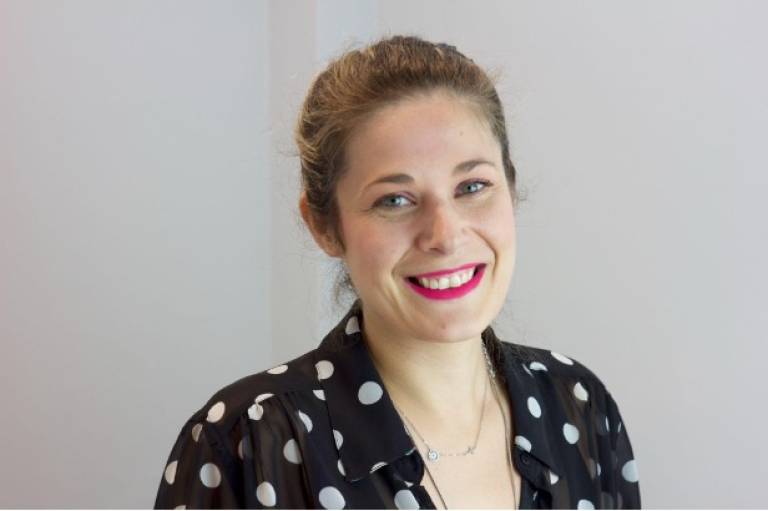Spotlight: Maria Xenou
10 November 2023
Maria Xenou, a current PhD student at the UCL Institute of Health Informatics shares more about her PhD looking into digital health.

Tell us about yourself
My name is Maria Xenou. I am a part-time Ph.D. student at UCL Institute of Health Informatics and I’ve worked as the Research and Evaluation lead for Patients Know Best.
Can you tell us about your (PhD) research?
My research focuses on the case study of Patients Know Best (PKB) investigating the impact of PKB as a patient-controlled health record on patients and the healthcare economy. Patients Know Best is a transformative digital health platform that places control over healthcare information directly into the hands of patients, allowing them to actively participate in managing their medical records and facilitating seamless communication with healthcare providers. Moreover, it empowers patients by giving them control over their health records and enabling secure, real-time sharing of medical information with healthcare professionals. PKB's user-friendly interface fosters collaboration and communication between patients and healthcare providers, ultimately enhancing the quality of care and patient outcomes. My research provides invaluable insights into the potential benefits of patient-controlled records, both for individuals and the broader health economy, contributing to the ongoing evolution of healthcare in the digital age.
How can using digital tools benefit health care?
Using digital tools in healthcare brings numerous benefits that can transform the world of health. Digital tools enhance patient care through telemedicine, health monitoring, and electronic health records, making healthcare more accessible and efficient. They facilitate streamlined administrative processes, reducing paperwork and improving resource allocation. Digital technology also empowers patients through personalised health apps and remote monitoring, promoting active engagement in their well-being. Moreover, it enables advanced data analytics and research, leading to more effective treatments and interventions. Overall, the digital sphere is poised to revolutionise healthcare by improving accessibility, efficiency, and patient outcomes while advancing medical research and treatment strategies.
What are your thoughts of safely using digital resources for health?
Safely using digital tools and resources for health is of utmost importance. As technology continues to play a significant role in healthcare, ensuring the privacy and security of health data, implementing strong authentication measures, and providing education on safe practices are essential. Regular updates, secure communication, and data backup procedures are key components of a safe digital healthcare environment. Additionally, fostering transparency, patient empowerment, and adherence to data protection regulations are critical for building trust and ensuring that digital tools contribute positively to the future of healthcare.
If you could make one change in the world today, what would that be?
I would like people to work collectively to address pressing global challenges, such as climate change, poverty, health disparities, and conflict resolution, could have a profoundly positive impact on the well-being of people and the planet.
 Close
Close

